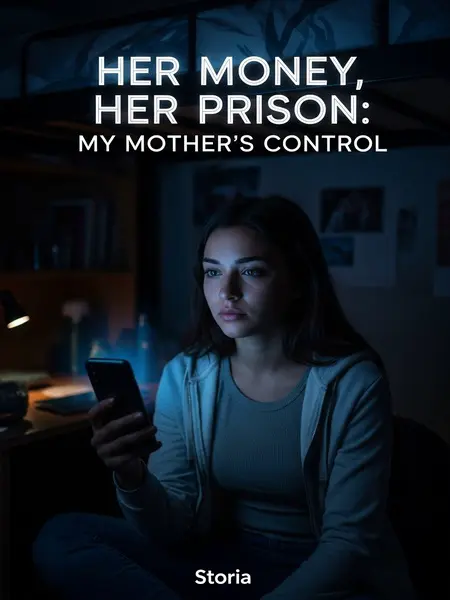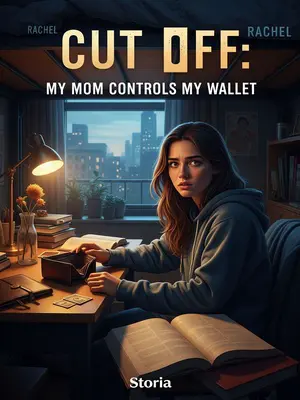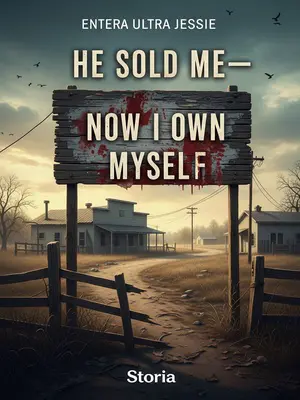Chapter 4: Finding a Crack in the Cage
In front of the campus job board, I stare at a faded part-time job ad for ten minutes. The hallway smells like old floor wax and cheap coffee. Students brush past, not noticing the way I’m rooted to the spot.
“Coffee shop hiring part-time, $10/hour”—not much, but enough to buy the necessities my mother forbids. I do the math in my head: three shifts a week, maybe I could buy a bottle of decent shampoo and a real lunch without consulting anyone.
I take out my phone, carefully snap a picture of the contact info, my finger hovering over the dial pad, then withdrawing. Even now, my hands shake. I keep glancing over my shoulder, as if my mom might appear behind me, phone in hand.
With my mother’s $5 daily limit, even buying a bottle of shampoo takes three days of ‘saving.’ I have to plan out every purchase like I’m budgeting for a cross-country road trip.
Yesterday my period came unexpectedly, and I had to borrow tampons from Jamie. She didn’t say anything, but her eyes were full of awkward sympathy. I hated it.
The pity in her eyes stung more than my mother’s scolding. I felt smaller than ever, wishing I could just disappear into the linoleum.
“Nina?”
I turn. Senior Liz from the student council is looking at me, curious. She’s got that easy confidence that comes from running too many clubs and knowing the best campus coffee shops.
She’s the president of the creative writing club and once praised my book report. Her words stuck with me longer than I’d admit.
“Hey, Liz.” I instinctively shield the job board, as if it’s something shameful. I don’t want anyone to know how desperate I am.
“Looking for a part-time job?” She smiles gently. Her tone says she’s seen it all before.
“The writing club is also hiring an editorial assistant. You’d organize submissions each week—there’s a stipend.”
My heart races. Editorial assistant. Stipend. The words sound magical, a way out.
“Do I... need an interview?”
“Just send me your work.”
She hands me a flyer. “By the way, there’s a citywide college writing contest next month. First prize is $800. You should enter.”
Eight hundred dollars. That’s five months’ living expenses from my mother. I swallow, the number swirling in my mind like a lifeline.
My hand trembles as I take the flyer. I clutch it tight, as if it might vanish.
Back in the dorm, I quickly tuck the flyer into my textbook. My hands are still shaking. I feel like a spy hiding classified documents.
The dorm is empty. My roommates probably went to the dining hall together—since the ‘pizza incident,’ they rarely invite me anymore. Sometimes I hear them whispering, but I can’t blame them.
My phone vibrates: my mother’s routine check-in.
“Did you check in for class at noon? Send me a screenshot.”
Her voice comes from the speaker. “Also, I saw on Family Wallet that you only spent $2.15 at the cafeteria yesterday. What did you eat?”
“Vegetables and rice...” I answer softly. I leave out the fact that I skipped breakfast to stretch my budget.
“What about protein? Didn’t I tell you to eat balanced meals?”
She sighs. “If you keep this up, you’ll get sick. Then what will you do?”
I stare at my roommates’ travel photos on the wall and suddenly interrupt her. “Mom, I want to apply for work-study.”
There’s a long silence on the other end. I imagine her at the kitchen table, fingers drumming on the wood, already preparing her argument.
“What work-study? Are you short of money? Didn’t I give you living expenses?”
“It’s not about money...” I choose my words carefully. “It’s... to gain experience.”
“Nonsense.”
Her voice sharpens. I can almost see her frowning at her phone, the way she does when she thinks she’s losing control.
“A student’s job is to study. Experience is a waste of time. Are you being led astray by bad friends again?”
I bite my lip and stop arguing. My fingers dig into the edge of my desk, leaving half-moons in the wood.
After hanging up, I dig out my old notebook from under the mattress, flip to the page titled “Student Loan,” and draw a heavy X beside it.
Parents will definitely find out about student loans. That path is closed. I feel the walls closing in again.
At the back of the notebook are story fragments I secretly wrote—a girl locked in a high tower, braiding her long hair into a rope every day, trying to escape.
I add a few new lines: [The girl discovers the witch guarding her is actually afraid of mirrors...]
The next day in the writing club activity room, I hand three revised stories to Liz. The air smells like printer ink and fresh coffee. It feels like possibility.
“These are really well written.” She flips through the pages, her eyes shining. “Especially this one, ‘The Tower.’ The metaphor is so clever. Are you really just a freshman?”
I lower my head, staring at my toes, unused to praise. My cheeks heat up, but I can’t help smiling just a little.
“Just... casual writing.”
“No, you have real talent.” She says seriously. “You must enter the contest. The deadline is next Friday. Need help revising?” My fingers tremble as I fidget with my sleeves, hope and fear wrestling in my chest.
Leaving the activity room, it starts to drizzle. I pause at the door, letting the damp air wash over me.
I stand under the eaves, watching raindrops splash the sidewalk, and remember how my mother never let me jump in puddles as a kid. She’d yank me back, worried about ruined shoes and catching cold.
I lift my foot and stomp into the nearest puddle. Muddy water splashes my jeans, and a strange, wild joy surges through me. I laugh out loud, the sound echoing against the brick wall. For a second, I’m just another college kid, soaking my jeans, not worrying about mud or ruined shoes.
My phone rings again: a video call from my mother.
I take a deep breath and answer.
“Nina, where are you? Why is there a classroom building behind you?”
“Shouldn’t you be in the library at this hour?”
Her gaze sweeps the background like a searchlight. I step aside so the puddle isn’t visible.
“Just... just finished an elective.” I lie, my heart pounding.
“What elective? It’s not on your schedule.”
“It’s... literary appreciation. A last-minute addition.”
I quickly change the subject. “Mom, my phone is dying. Let’s talk tonight.”
After hanging up, I realize I’m drenched in cold sweat. I wipe my palms on my jeans, staring at the reflection in a puddle. It’s the first time I realize I can lie to her—and get away with it.
So lying is this easy. My pulse races—half terror, half wild, giddy relief. My mother isn’t all-knowing after all.
This realization fills me with both fear and exhilaration. I feel like a magician discovering her first real trick.
From then on, I move between two worlds like an undercover agent.
By day, I’m the obedient daughter, sending class check-in screenshots and spending only in the cafeteria. My digital footprints are spotless.
By night, I write furiously in the library, pouring years of bottled-up imagination into my contest story. The words flow like a river, unstoppable.
The day I finish “The Tower,” I save it to a flash drive, my hands shaking as I type in my email. I hesitate only a second, then hit send.
Eight hundred dollars is my goal, but more than that, this is the first thing I’ve ever chosen for myself. I close my eyes, letting the pride sink in.
“Once you send it, you really can’t take it back,” Liz says, smiling.
I shake my head, click send, and when the email says ‘Sent,’ I feel a wave of relief. My chest feels lighter, like I’ve let go of something heavy I didn’t know I was carrying.
“I won’t regret it.”
On my way back to the dorm, the Family Wallet alert sounds—my mother has transferred next week’s “limited living expenses.”
I stare at the number and suddenly laugh. It’s so small, it’s almost funny.
She doesn’t know her daughter has already found another key, slowly turning the lock on the tower door.













